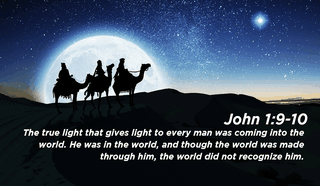
Change Translation
- Recent Translations
- All Translations
John 1:13
Share
Listen to John 1:13
Settings
Scripture Text Size
13
qui non ex sanguinibus neque ex voluntate carnis neque ex voluntate viri sed ex Deo nati sunt
John 1:13 In-Context
11
in propria venit et sui eum non receperunt
12
quotquot autem receperunt eum dedit eis potestatem filios Dei fieri his qui credunt in nomine eius
13
qui non ex sanguinibus neque ex voluntate carnis neque ex voluntate viri sed ex Deo nati sunt
14
et Verbum caro factum est et habitavit in nobis et vidimus gloriam eius gloriam quasi unigeniti a Patre plenum gratiae et veritatis
15
Iohannes testimonium perhibet de ipso et clamat dicens hic erat quem dixi vobis qui post me venturus est ante me factus est quia prior me erat
The Latin Vulgate is in the public domain.

